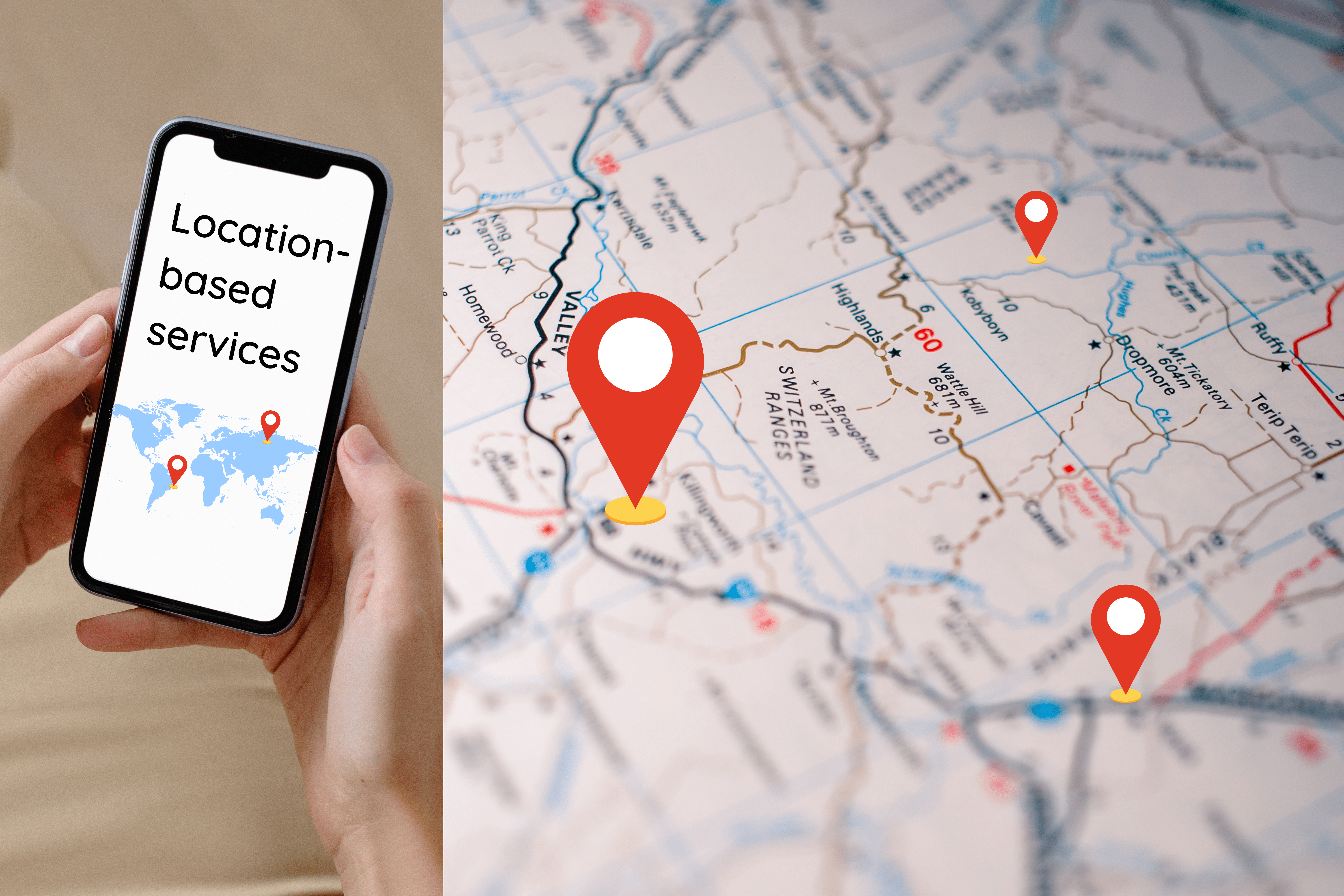As part of an international Delphi study concerning future potentials and challenges of location-based services (LBS), the KomMa team was able to interview some of the most prominent experts regarding LBS – from either a scientific or entrepreneurial background, ensuring particularly interdisciplinary perspectives on the research subject.
After a comprehensive evaluation of the study’s results has already been presented at the emma (European Media Management Association) 2021 in Jönköping, Sweden, a further investigation of specific innovative localization technologies mentioned by the participants during the interviews will now be the focus of a KomMa team presentation at this year’s emma conference in Munich. Below you can find an excerpt from the according abstract:
Abstract
Ongoing and rapid digital transformation processes are affecting businesses as well as our entire society, with business model innovations causing radical changes in consumer behavior (Mäkiö et al 2018; Skog et al. 2018). Users nowadays increasingly expect a constant availability of high-quality, real-time digital services (Mergel et al. 2019; Verhoef et al. 2021). Consequently, one of the core questions in this context seems to be which kind of technologies may endure in the near- and long-term future. With an ever-increasing demand for flexible, mobile and fast ways of communication, users also expect digital media offerings to be specifically customized according to their situational and spatial context (Peters 2016; Quy Tran et al. 2018). Since location has been identified as a key factor in predicting user behavior (Karimzadeh et al. 2018), the future potential of location-based media applications in today’s mobile information era is considered particularly high (Huang et al. 2018). With ‘location-based services’ (LBS) a user’s mobile device can be geographically localized in order to provide content tailored to the user’s current context (Junglas & Watson 2008; Raper et al. 2007; Schnabel 2009). Thus, the deployment of LBS is predestined to meet the current digital transformation of media industries – however, despite their huge potentials as a ‘lasting’ technology, the future of LBS is still considered to be uncertain due to continuous technological developments (Thomas & Thampi 2011), such as “new forms of visualisation beyond maps, such as 3D, VR, and augmented reality” (Huang et al. 2018).
This contribution aims to identify innovations that can be realized through the use of localization technologies with high future potential in various sectors of LBS usage. Previous research has so far mostly targeted this field from an IT-related perspective while social scientific traditions and approaches appear to be rather underrepresented (Authors 2020). Thus, this contribution’s findings are based on a Delphi study of two iterations addressing personal assessments of relevant international LBS-experts from a scientific or an entrepreneurial background. While this initial Delphi study was mainly aimed at providing a general look into the future of LBS – in order to derive future developments, solutions for current obstacles and impulses for future research – this contribution is specifically devoted to one subsection of the dataset generated in the Delphi study, that was discussed unexpectedly intensively by almost all participants: the aforementioned technologies with high future potential as well as their purposes and possible application areas.
Curious about the results of the KomMa study? Don’t miss the emma conference, June 15-17, 2022.
Literatur
Huang, H., Gartner, G., Krisp, J. M., Raubal, M., & van de Weghe, N. (2018). Location based services: ongoing evolution and research agenda. Journal of Location Based Services, 12(2), 63–93.
Junglas, I. A., & Watson, R. T. (2008). Location-based services. Communications of the ACM, 51(3), 65–69.
Krusch, A.-L. C., Uphaus, P. O., & Rau, H. (2020). Only Location: A Systematic Literature Review on Context Marketing. In 2020 IEEE International Symposium on Technology and Society (ISTAS), 2020 (pp. 204–209).
Karimzadeh, M., Zhao, Z., Gerber, F., & Braun, T. (2018). Mobile Users Location Prediction with Complex Behavior Understanding. In 2018 IEEE 43rd Conference on Local Computer Networks (LCN). Piscataway, NJ: IEEE.
Mäkiö, J., Miroliubov, A., & Zhgun, V. (2018). Digitalization – quo vadis? SHS Web of Conferences, 44, 56.
Mergel, I., Edelmann, N., & Haug, N. (2019). Defining digital transformation: Results from expert interviews. Government Information Quarterly, 36(4), 101385.
Peters, C. (2016). Spaces and Places of News Consumption. In T. Witschge, C. W. Anderson, & D. Domingo (Eds.), The SAGE Handbook of Digital Journalism (pp. 354–369). London: SAGE.
Quy Tran, H., van Phan, C., & Vien, Q.‑T. (2018). An Overview of 5G Technologies. In K. V. Arya, R. S. Bhadoria, & N. S. Chaudhari (Eds.), Emerging Wireless Communication and Network Technologies: Principle, Paradigm and Performance (pp. 59–80). Singapore: Springer.
Raper, J., Gartner, G., Karimi, H., & Rizos, C. (2007). A critical evaluation of location based services and their potential. Journal of Location Based Services, 1(1), 5–45.
Schnabel, Christoph (2009): Datenschutz bei profilbasierten Location Based Services: Die datenschutzadäquate Gestaltung von Service-Plattformen für Mobilkommunikation. Kassel: Kassel University Press.
Skog, D. A., Wimelius, H., & Sandberg, J. (2018). Digital Disruption. Business & Information Systems Engineering, 60(5), 431–437.
Thomas, D., & Thampi, S. M. (2011). Mobile Query Processing-Taxonomy, Issues and Challenges. In A. Abraham (Ed.), Advances in Computing and Communications: First International Conference, ACC 2011, Kochi, India, July 2011 Proceedings, Part I (Vol. 190, pp. 64–77). Berlin: Springer.
Verhoef, P. C., Broekhuizen, T., Bart, Y., Bhattacharya, A., Qi Dong, J., Fabian, N., & Haenlein, M. (2021). Digital transformation: A multidisciplinary reflection and research agenda. Journal of Business Research, 122, 889–901.
Bild: Jette Mertins.






Noch kein Kommentar, Füge deine Stimme unten hinzu!